
George VI was King of the United Kingdom and the Dominions of the British Commonwealth from 11 December 1936 until his death on 6 February 1952. He was also the last Emperor of India from 1936 until the British Raj was dissolved in August 1947, and the first head of the Commonwealth following the London Declaration of 1949.

George V was King of the United Kingdom and the British Dominions, and Emperor of India, from 6 May 1910 until his death in 1936.

Victoria was Queen of the United Kingdom of Great Britain and Ireland from 20 June 1837 until her death in 1901. Her reign of 63 years and 216 days, which was longer than any of her predecessors, is known as the Victorian era. It was a period of industrial, political, scientific, and military change within the United Kingdom, and was marked by a great expansion of the British Empire. In 1876, the British Parliament voted to grant her the additional title of Empress of India.

Mary of Teck was Queen of the United Kingdom and the British Dominions, and Empress of India, from 6 May 1910 until 20 January 1936 as the wife of King-Emperor George V.

Prince Albert of Saxe-Coburg and Gotha was the husband of Queen Victoria. As such, he was consort of the British monarch from their marriage on 10 February 1840 until his death in 1861.

The House of Windsor is a British royal house, and currently the reigning house of the United Kingdom and the other Commonwealth realms. Since it was founded in 1917, there have been five British monarchs of the House of Windsor: George V, Edward VIII, George VI, Elizabeth II, and Charles III. The children and male-line descendants of Queen Elizabeth II and Prince Philip also genealogically belong to the House of Oldenburg since Philip was by birth a member of the Glücksburg branch of that house.
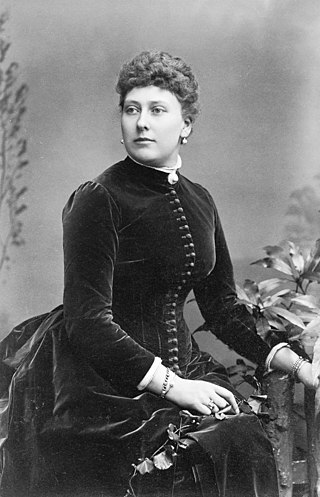
Princess Beatrice, later Princess Henry of Battenberg, was the fifth daughter and youngest child of Queen Victoria and Prince Albert. Beatrice was also the last of Queen Victoria's children to die, nearly 66 years after the first, her elder sister Alice.
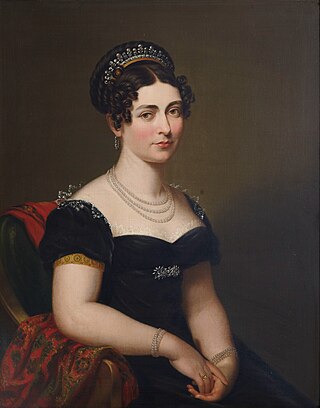
Princess Victoria of Saxe-Coburg-Saalfeld, later Princess of Leiningen and subsequently Duchess of Kent and Strathearn, was a German princess and the mother of Queen Victoria of the United Kingdom. As the widow of Charles, Prince of Leiningen, from 1814, she served as regent of the Principality during the minority of her son from her first marriage, Carl, until her second wedding in 1818 to Prince Edward, fourth son of George III.

Charles Strouse is an American composer and lyricist best known for writing the music to such Broadway musicals as Bye Bye Birdie, Applause, and Annie.

The use of the title of Princess of the United Kingdom of Great Britain and Northern Ireland is entirely at the will of the sovereign as expressed in letters patent. Individuals holding the title of princess are styled "Her Royal Highness" (HRH). On 18 April 1917, Frederica of Hanover, the newest granddaughter of Wilhelm II, German Emperor was styled a British princess from birth, even though Germany and Britain were fighting in World War I. Before the First World War, British princesses also held additional German titles, such as princesses of Hanover by virtue of being male-line descendants of George III; or princesses of Saxe-Coburg and Gotha, duchess of Saxony, by virtue of being male-line descendants of Prince Albert of Saxe-Coburg and Gotha. George V issued letters patent on 30 November 1917, to restrict the automatic assignment of the title "princess" and the use of the style "Royal Highness" to the following persons:

Valentine Ruth Henshall, known professionally as Ruthie Henshall, is an English actress, singer and dancer, known for her work in musical theatre. She began her professional stage career in 1986, before making her West End debut in Cats in 1987. A five-time Olivier Award nominee, she won the 1995 Olivier Award for Best Actress in a Musical for her role as Amalia Balash in the London revival of She Loves Me (1994).
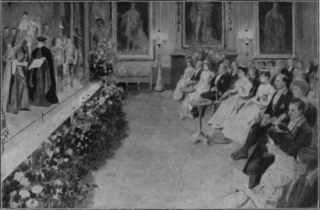
A Royal Command Performance is any performance by actors or musicians that occurs at the direction or request of a reigning monarch of the United Kingdom.

Princess Sibylla of Saxe-Coburg and Gotha was a member of the Swedish royal family and the mother of the current king of Sweden, Carl XVI Gustaf.

The history of monarchy in Canada stretches from pre-colonial times through to the present day. The date monarchy was established in Canada varies; some sources say it was when the French colony of New France was founded in the name of King Francis I in 1534, while others state it was in 1497, when John Cabot made landfall in what is thought to be modern day Newfoundland or Nova Scotia, making a claim in the name of King Henry VII. Europeans in the 16th and 17th centuries often considered the territories belonging to different aboriginal groups to be kingdoms. Nevertheless, the present Canadian monarchy can trace itself back to the Anglo-Saxon period and ultimately to the kings of the Angles and the early Scottish kings; monarchs reigning over Canada have included the those of France, those of the United Kingdom, and those of Canada. Canadian historian Father Jacques Monet said of Canada's Crown, "[it is] one of an approximate half-dozen that have survived through uninterrupted inheritance from beginnings that are older than our Canadian institution itself."
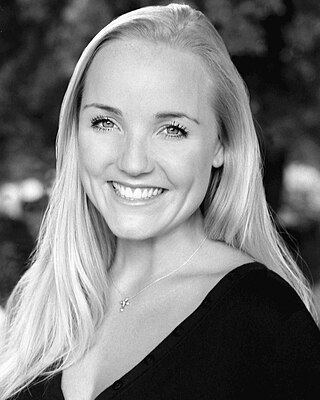
Kerry Jane Ellis is an English actress and singer who is best known for her work in musical theatre and subsequent crossover into music. Born and raised in Suffolk, Ellis began performing at an early age before training at Laine Theatre Arts from the age of 16.

Liz Robertson is an English actress and singer and the widow of playwright and lyricist Alan Jay Lerner. She is especially well known for her performances as Madame Giry, having played the role in the original cast of Love Never Dies at the Adelphi Theatre, in The Phantom of the Opera at Her Majesty's Theatre and in The Phantom of the Opera at the Royal Albert Hall.
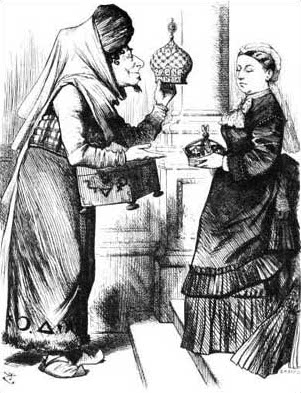
Queen Victoria has been portrayed or referenced many times.
Australia is a constitutional monarchy whose Sovereign also serves as Monarch of the United Kingdom, New Zealand, Canada and eleven other former dependencies of the United Kingdom including Papua New Guinea, which was formerly a dependency of Australia. These countries operate as independent nations, and are known as Commonwealth realms. The history of the Australian monarchy has involved a shifting relationship with both the monarch and also the British government.

Edward VIII, later known as the Duke of Windsor, was King of the United Kingdom and the Dominions of the British Empire and Emperor of India from 20 January 1936 until his abdication in December of the same year.
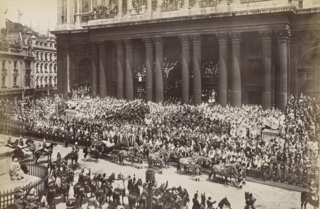
The Diamond Jubilee of Queen Victoria was officially celebrated on 22 June 1897 to mark the occasion of the 60th anniversary of Queen Victoria's accession on 20 June 1837. Queen Victoria was the first British monarch ever to celebrate a Diamond Jubilee.



















